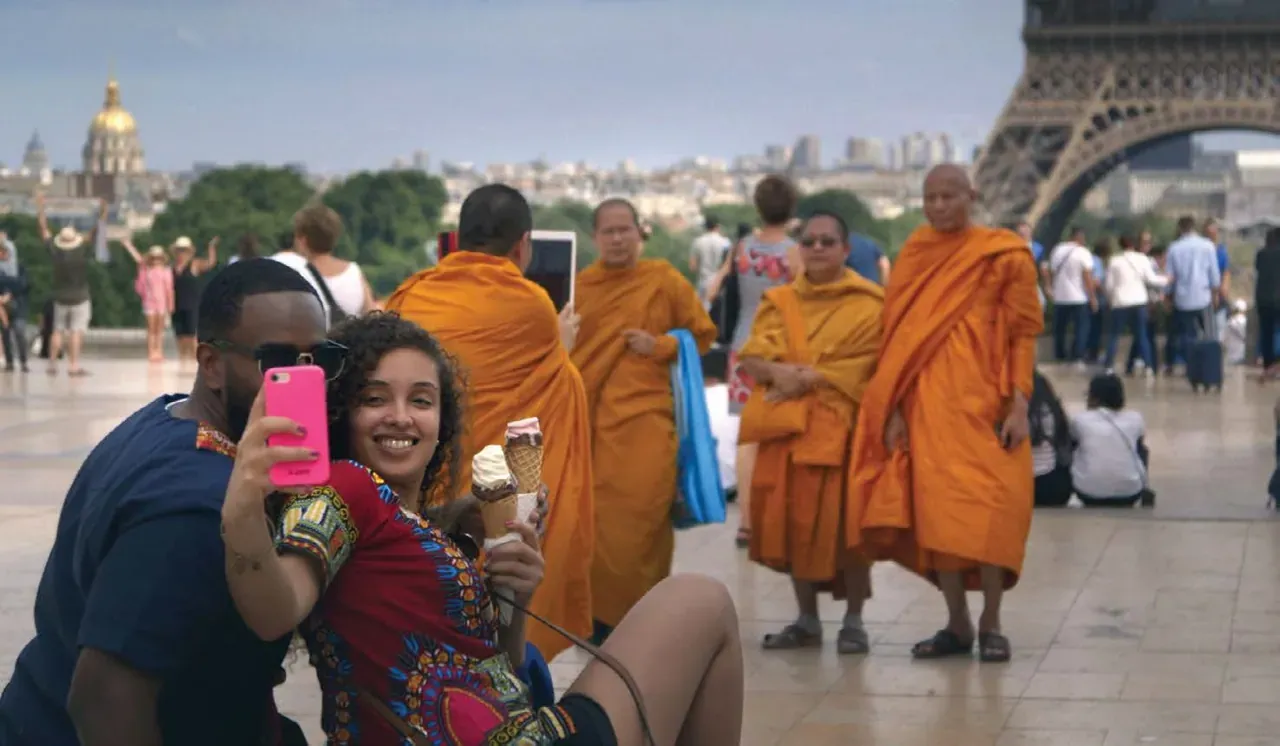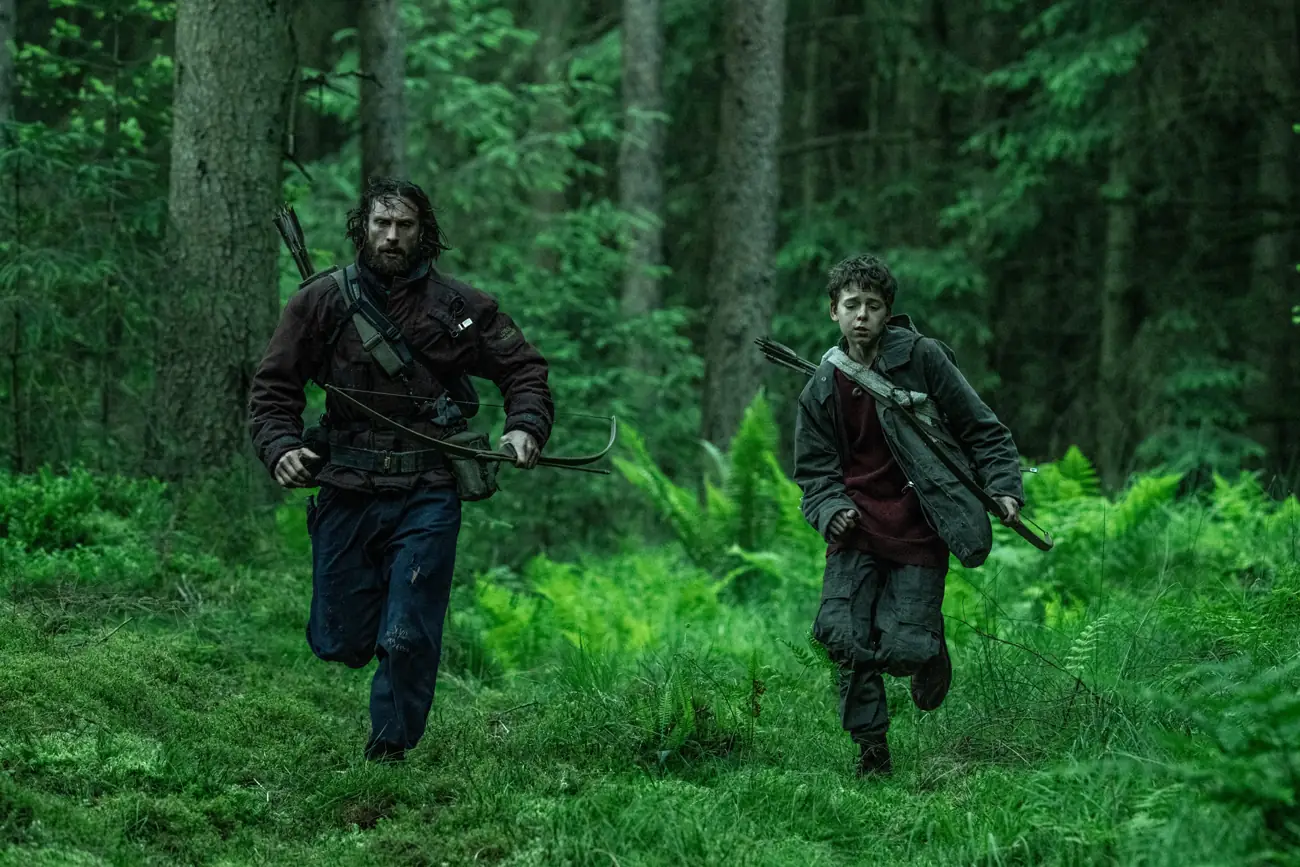In an early contender for one of the best films of the year, Mika Mattila captures with stunning clarity the hubris and arrogance of human tourism. Documenting the herd-like patterns of tourists in multiple countries, Mattila has created a stunning portrait of our disconnect with other cultures even at the height of global tourism.
Combining staged narratives with fly-on-the-wall observations, Mattila’s rumination on our inherent desire to travel is juxtaposed brilliantly with the darker aspects that travel brings. Through visual storytelling it brings us from ancient history to the present day, connecting past naivety with crass commercialism today.
A single arresting and terrifying image early on captures the terror of mass tourism. The idyllic existence of Venice is interrupted by a cruise liner rumbling into port. Its massive hull looms over natural beauty as the masses gawk at the locals from their elevated deck.
Split between monologues and visual essays, CARNIVAL PILGRIMS is at its best in silent judgment, slyly highlighting the noxious nature of modern-day tourism. Some scenes feel staged and are less effective, even as they try to underline what becomes apparent through silent observation. This isn’t a long film, yet it feels massive in scope. Mattila has traversed the globe to capture events from North America to Nepal. Connected through three movements, CARNIVAL PILGRIMS creates an emotional bridge throughout history that transcends exposition. Poetic motion through space and time allows us to understand our effect on this earth and other cultures. More esoteric moments combined with narration from the epic of Gilgamesh reach the highs of Godfrey Reggio’s brilliant KOYAANISQATSI.
In just ninety minutes, Mattila takes us from indescribable beauty to the horrific depths of consumer migration.
The visits range from harmless to painfully disturbing. Japanese tourists visit Santa and marvel at the fiction with childlike innocence. Elsewhere rich westerners dip their toes into poverty-ridden villages to experience “true paradise” for fifteen minutes. As natives pose in silence, wealthy tourists photograph them like animals to bring back tales of exotic savages. It is enough to put you off from traveling for good.
Colonization never ended, it was just rebranded.
We become voyeurs of the earth. Commodifying natural beauty in a perverse act to make exploration binary. This place is hip this year, we should go like all the others. We no longer experience things, only document them for brief moments on Instagram.
Tourism, at its heart, is the practice of inequality.
Watching people meticulously pose and fictionalize their experiences in the face of natural beauty is a sobering experience. There’s bleak humor to be found in seeing tourists line up to experience something that’s been branded unique. At the Louvre, a bored tourist offhandedly remarks how they’ve had to come here because others do the same; in Jerusalem, dozens halfheartedly listen as a tour guide drones about the recreation of the childhood home of Jesus Christ, while in Nepal a group of teenagers sit through religious ceremonies because that’s what they’ve come to expect from pop-culture.
What began as a notion to understand the world has become ruined by our own complacency and laziness. At each location, people proclaim their change for the better. Declaring that this spiritual experience touched them deeply, yet year after year the world remains unchanged. As tourists, we deny ourselves the chance to grow by clinging on to packaged experiences.
Mattila’s film is a mirror of our biggest faults; always dispassionate yet never unkind. There is a deep understanding that within the capitalist poison, there still are people who seek purpose and connection. It asks us to consider the cost of modern-day travel and the planetary sacrifice at the altar of personal happiness.
Connecting to the epic of Gilgamesh, CARNIVAL PILGRIMS shows our repetition of history even as we brand ourselves as pioneers. All of this has happened before; we truly are locusts.














Discussion